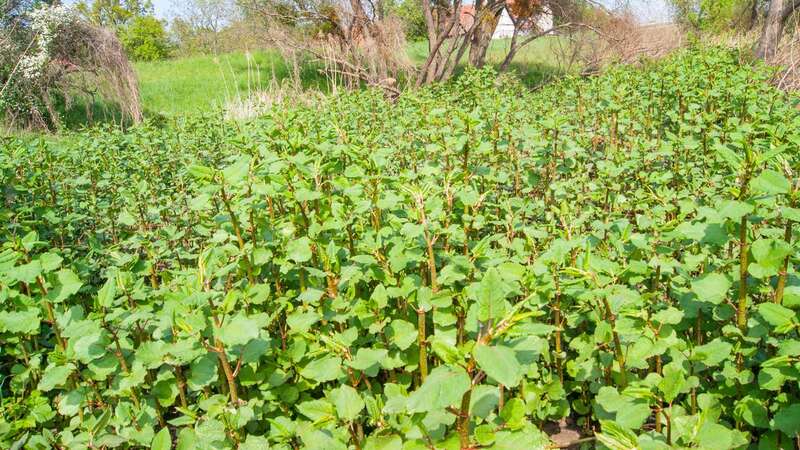
Gardening experts have warned those wishing to buy a property to be extra careful when viewing potential new homes as the highly problematic Japanese knotweed is much easier to hide during the colder months.
The perennial plant, whose leaves are heart or shovel-shaped, dies back in the autumn, when the leaves will fall off, leaving the dry canes visible for a few months.
By late November and December it is much harder to spot in the garden and home sellers could potentially disguise it, even though it is illegal not to declare the weed's presence because of how invasive the plant is.
Nic Seal, founder of invasive plant specialist Environet UK, told the Express: "Risks to homebuyers are considerably greater during winter, when knotweed is easier to hide. As well as removing the dead canes and covering the crowns, we've seen cases where it has been covered with decking, had a pathway or patio laid over it, or even a shed."
If the weed, which was actually introduced to the UK as an ornamental plant, is in the garden, by the time spring arrives, stem growth begins from deeply-penetrating rhizomes (creeping underground stems). Reddish-purple shoots emerge from ground level and they grow very quickly by summer into bamboo-like canes, which can grow up to 7ft in height. The canes have purple flecks on and branches sprout from them, which produce the leaves. A creamy-white flower is produced in late summer and early autumn and they can reach up to six inches.
 Four bedroom home with its own TRAIN TRACK on sale… but there’s a catch
Four bedroom home with its own TRAIN TRACK on sale… but there’s a catch
In 2013 it became law that a seller must declare the weed on their property through a TA6 form - the property information form used for conveyancing. They must check their garden and if it is present provide a professional eradication plan. For buyers, if the TA6 form states that the weed is on the property, a mortgage lender may require assurances that a professional removal is underway before it will release funds because if it gets out of control it can diminish the value of the property, such is its capability of damage.
The Royal Horticultural Society (RHS) advises buyers and sellers to be proactive in confirming there is no Japanese knotweed on the site. It states: "Disputes over the identity of a plant, the failure to disclose its presence, or the lack of a management plan can result in delays, increased costs later in the buying process, or even a possible misrepresentation claim after the sale."
Although it's not illegal to have the plant in your garden, property owners could be prosecuted if they fail to control the non-native weed and it is causing a serious problem in the neighbourhood. Disposal of the plant must take place at licensed sites as growth is possible from very small sections of rhizomes.
Martin Lewis fans can snap up £1 Oodie in flash Black Friday deal
Read more similar news:
Comments:
comments powered by Disqus
































